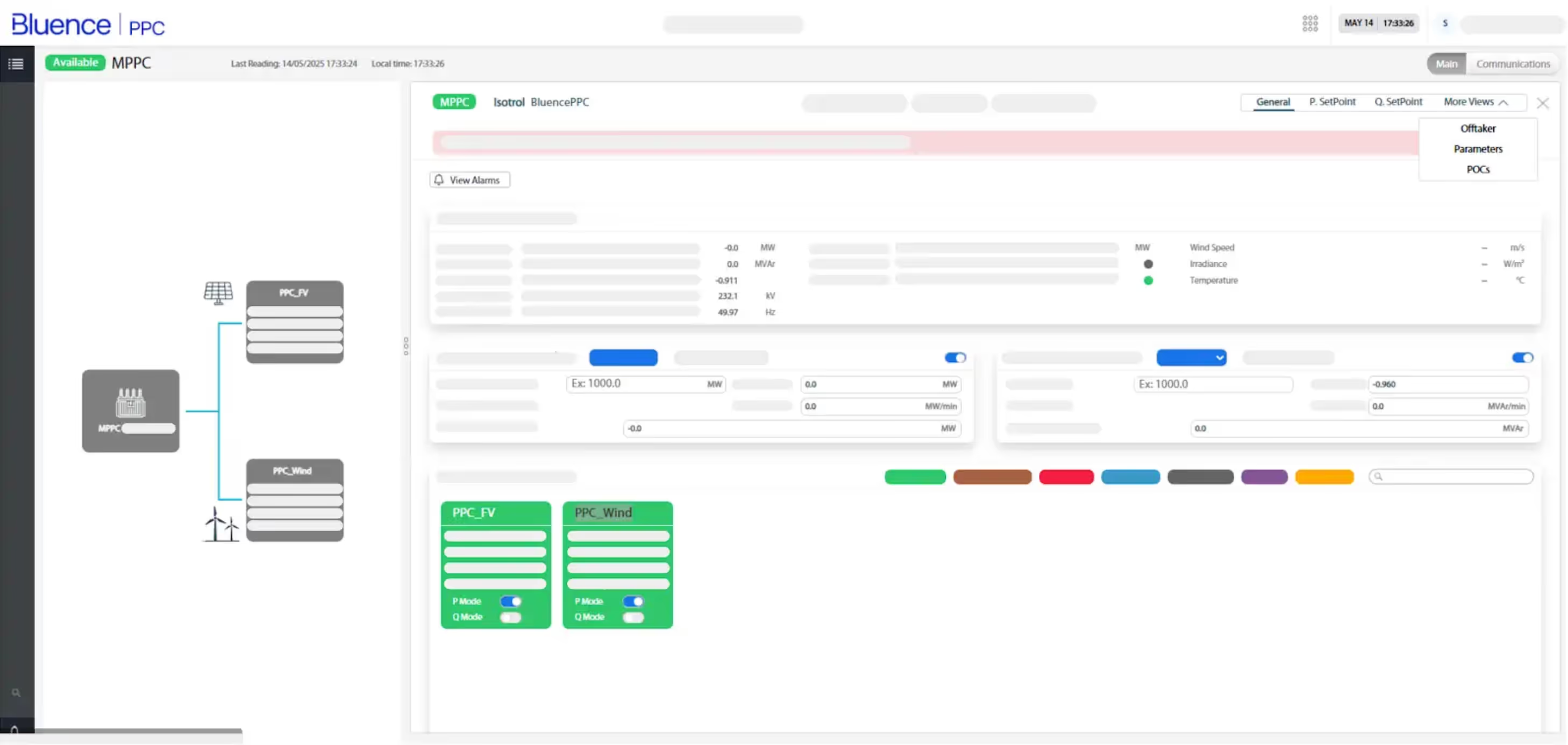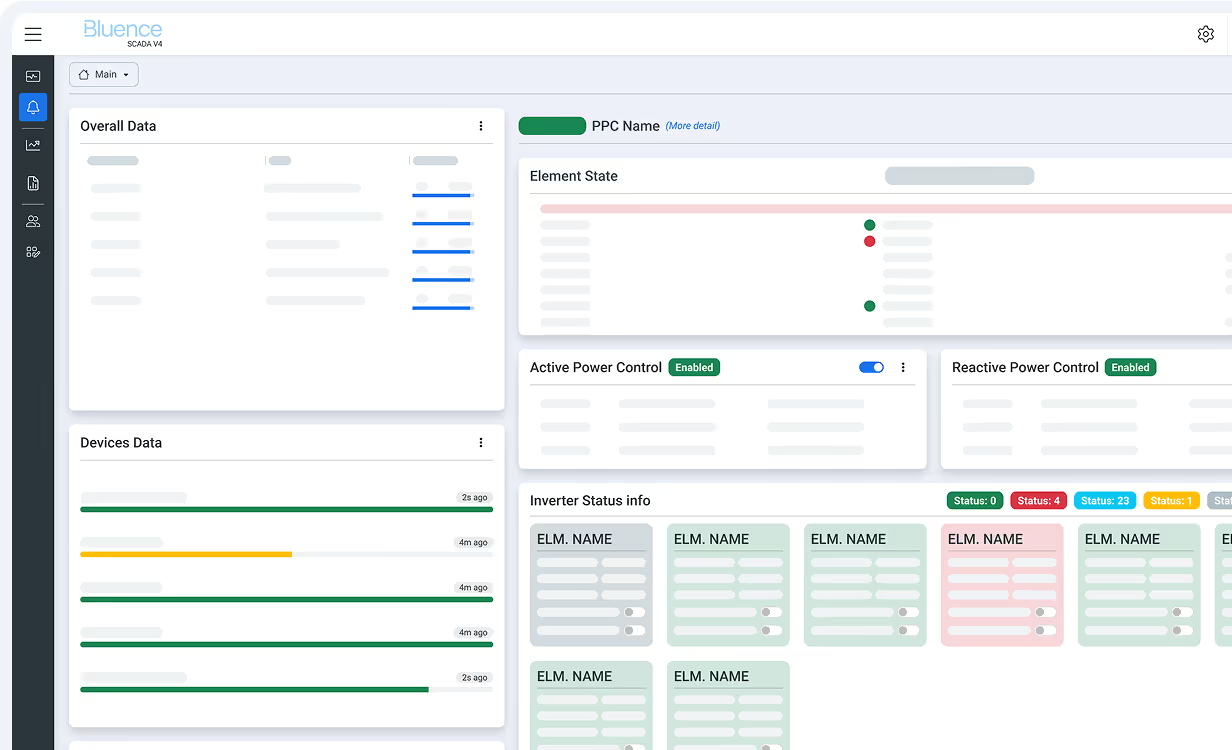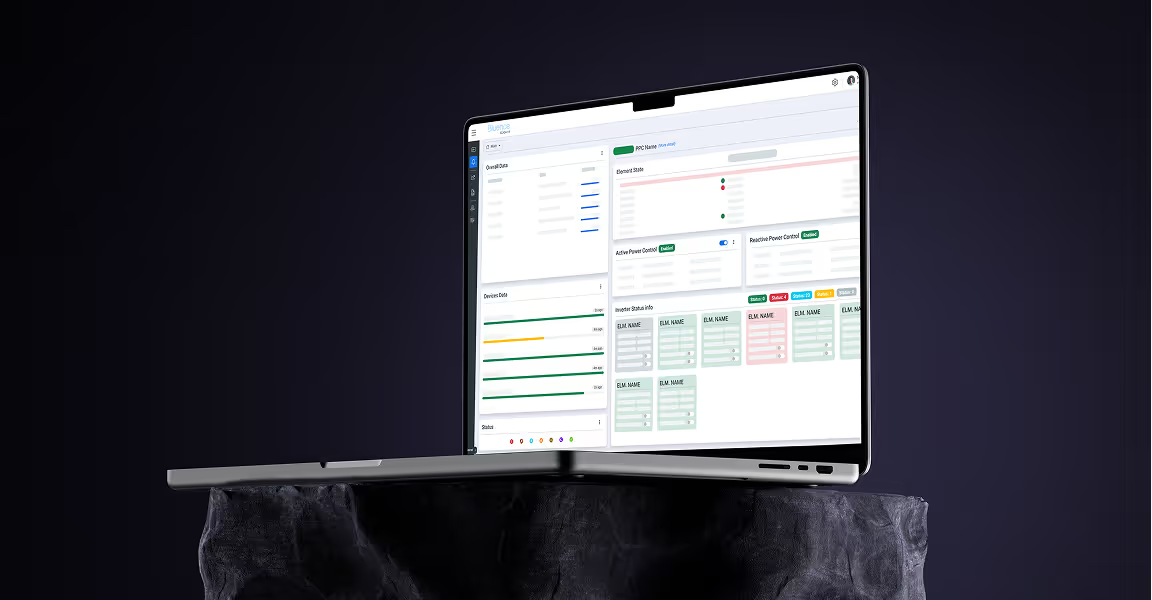Bluence PPC
Meet grid codes and boost dispatchability with a flexible solution



.avif)
Comply with the most stringent grid codes and manage ancillary services in any tech plant.
Bluence PPC is much more than a plant controller. It is a flexible solution, ready to manage any technology, adapt to any protocol, and operate under any regulations. An advanced Power Plant Controller with advanced algorithms and expert support.

Comply, control, and optimize from a single system


Enhance plant performance with a dynamically evolving optimization algorithm


Integrate any technology with confidence, including storage and hybridization

24/7 support and customization
It's not just a product, it's expert service
A specialized team supports you 24/7 from integration. Includes consulting services, FAT testing, and adaptation to new regulatory requirements.
.avif)
Reliability and assurance
Incorporate a proven PPC used in high-capacity plants worldwide, backed by specialized support


Bluence PPC manages plants with different technologies, including battery systems, and allows hybrid plants to operate with advanced control modes to ensure a dynamic and accurate response.


Ensures compliance with international standards and stringent O&M requirements.


It integrates with SCADAs, batteries, control centers, and any other control system, and speaks all languages: IEC 101-102-104, Modbus, OPC UA-XML, DNP 3.0... Real interoperability that saves you time and reduces complexity.


Bluence PPC integrates advanced features driven by a proprietary algorithm, which is continuously optimized to enhance plant performance and dispatchability.








Universal Compatibility
Install a solution ready to operate in any geographic area, with any protocol, and any technology, including storage and hybridization

ERCOT , PJM , CAISO, APS, MISO…


SPAIN, ITALY, PORTUGAL, ROMANIA …


MEXICO, CHILE, PERU…

Modular Solutions for Total Synergy
Easily scale your system with modular products that work together seamlessly.

AI-driven bidding, schedule, and real-time dispatch for energy storage assets

All our products
Bluence seamlessly connects with your existing systems, enabling automated workflows, real-time data synchronization, and enhanced efficiency across the entire renewable energy value chain.




















.avif)






